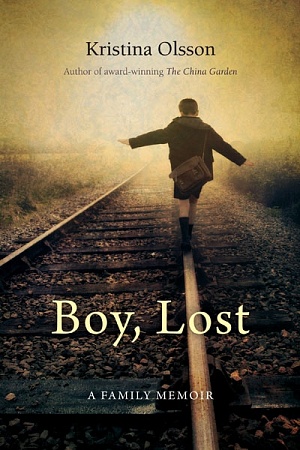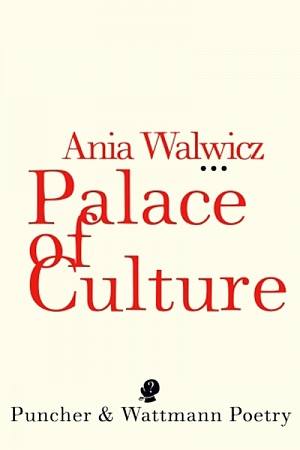Letters to the Editor – June 1991
Dear Editor,
The Fat Author Replies to Robert Dessaix:
The author does not embody Iiterary classification nor does she base her work on literary theory though literary criticism does inform her literary practice.
The critical texts on multiculturalism do propose difference and have formed a valid and important part of dialogue in Australian literature.
Dessaix truly exploits the multicultural area in his scurrilous article. Nasty work.
Ania Walwicz
Fitzroy
Dear Editor,
Kate Veitch’s review of Speaking with the Sun regrets the book’s emphasis on women writers, and suggests it might have benefitted from emphasising its regional push.
In fact, the collection is subtitled ‘New Stories from Australian and New Zealand Writers’. That those writers are all, this time, women, is something for which we make no apology, but the goal was certainly to create trans-Tasman interest in some of our region’s most interesting writers.
Stephanie Dowrick
Fiction Publisher
Allen & Unwin
Dear Editor,
Your editorial (April No. 129) suggested you were puzzled as to why some people get furious about Deconstruction.
I think I know why. I can’t terrifically passionate about it myself, but I have had occasions for irritation, so thought I’d attempt to explain, while I’m sitting here on this fence, swinging a leg each side and staring at the sun.
People find deconstruction upsetting on four counts, mainly four, I think. There could be subdivisions of course.
Firstly, it’s an elite practice. Elites are, by definition, exclusive and therefore never popular except with the people inside them. Who likes lawyers, freemasons, the Bloomsbury Group or the Ku Klux Klan? No one except their members. Same for Decons.
Secondly, and deriving from firstly, there’s a language problem. People, non-Decons, don’t understand what is being discussed, the terms of the discussion or indeed the point of the discussion. Where is it leading? Where will it end? Why are we/they doing this? And please, Miss, may I be excused?
Thirdly, deriving from first and secondly, there’s an Emperor’s New Clothes aspect. Words like Deconstruction, Postmodernism and Literary Theory sound pretty impressive. But do they denote anything ‘significantly’ different from good old literary analysis as practised for several centuries? Surely both old and new schools are doing the same thing – examining the work in hand to see what lies behind, beneath and within it.
Fourthly, deriving from all the above, the thing that perhaps gets non-Decons really wild is that nothing much seems to seep out of the monastery into the other/nether world. No (en)light(enment). It appears, perhaps falsely – tho’ I suppose truth and falsehood belong to the pathetic dark ages of good and bad – that this apparently innocent game of deconstruction takes a lot in, everything from Shakespeare to Coke ads, and gives nothing back. It’s like a roach motel for literature – the texts check in but they never check out. I can think of heaps more metaphors, but don’t want to become one of those garrulous old bores whose Letters to the Editor have to be cut.
Deconstruction, I reckon, is just a new word for an old and perfectly honourable practice; and it’s not their/its fault that we’re born into a world that requires endless repackaging. Literature will survive deconstruction – it was there before and will remain long after the word has disappeared.
Meanwhile, we simple souls will continue on our heedless happy way, enjoying freshness and truth wherever we find it. Mainly we seem to find it in the work of people who write our dreams for us and with us. Hope this helps. Some of my best friends are Decons.
Caroline Lurie
Australian Literary Management
Middle Park
Dear Editor,
Congratulations on securing and continuing to run the excellent and provocative Telecom-sponsored series, Australian Voices.
Congratulations especially to Peter Goldsworthy for his contribution to that series, ‘Natural Literature’, in the May issue.
It is heartening that more and more writers are daring to mention the nudity of the emperors of literary theory.
Suzanne Edgar
Garran
Dear Editor,
Who on modesty?
There are a few wholly unstartling correspondences between the multitude of names so modestly dropped in the April issue’s Telecom meditation (have I got it right?) on literary modesty and those summoned here in the Introduction to Alicia Ostriker’s Stealing the Language (Women’s Press, 1986):
… for the most continuous term of approbation for a woman poet from the early nineteenth century to the day before yesterday has been ‘modesty’. We are perhaps not surprised that an anthologist of American female poets in 1849 says that ‘the most worthy are the most modest’ since we think of the Victorian period as a nadir in women’s history. But in our own emancipated time Roy Harvey Pearce approves of Marianne Moore because her ‘insights are as modest’ as the scale of the world she examines. Elizabeth Bishop ‘is modest as she is dignified’. Louise Bogan is ‘elegant and remarkably self-effacing’ and stands ‘for public reticence’. Adrienne Rich’s first poems ‘are neatly and modestly dressed, speak quietly but do not mumble, respect their elders but are not cowed by them, and not tell fibs’, according to W.H. Auden. Most curiously, in the preface to Ariel, ... Lowell also commends Plath for ‘her hand of metal with its modest, womanish touch’.
But, of course, Emily Dickinson (dropping like a comet in her white dress) also appeared in the Anderson modesty piece. And carefully, to camouflage the sub-textual anxiety, a whole host of male names, the current great, good, courageous, true. But it was especially reassuring to learn of Helen Garner’s ‘sublime modesty’.
As the date of Ostriker’s book reminds us, my rather weary point was the spade work of the 1960s, 1970s, 1980s ... It would be good to toss away the spade. It would be good to see the ABR toss away the spade. After all, it’s some fair time since Tolstoy saw Anton Chekhov as ‘modest and quiet, like a girl’.
Who will rid us of these predictable (howsoever post-modernist) priests of the lexicon of gendered praise?
Elizabeth Lawson
University College
Canberra
Dear Editor,
I noticed in your latest issue (May No. 130) mention of the sale of Australia’s first children’s book, A Mother’s Offering to Her Children, for $17,000. However, the buyer was not acquiring the work of Lady Gordon (Bremer), as reported. In the late 1970s Marcie Muir located a review of the book that named the author as a Mrs Barton. This was Charlotte Barton, mother of Louisa Atkinson, the first Australian-born woman novelist.
How the anonymously published book came to be ascribed to Lady Bremer is uncertain, but the attribution to Charlotte Barton is generally accepted. A paper on Charlotte Barton and A Mother’s Offering to Her Children will be given at the next ASAL conference at Wagga Wagga, 1–5 July 1991. Further information may be obtained from David Gilbey, School of Humanities and Social Sciences, Charles Sturt University–Riverina.
Lucy Sussex
Dept of English
University of Melbourne










Leave a comment
If you are an ABR subscriber, you will need to sign in to post a comment.
If you have forgotten your sign in details, or if you receive an error message when trying to submit your comment, please email your comment (and the name of the article to which it relates) to ABR Comments. We will review your comment and, subject to approval, we will post it under your name.
Please note that all comments must be approved by ABR and comply with our Terms & Conditions.